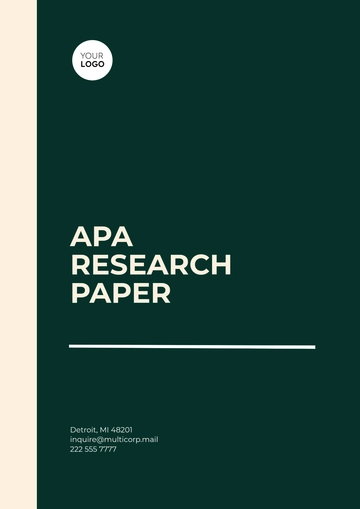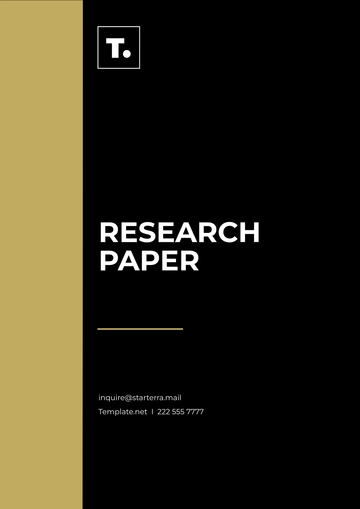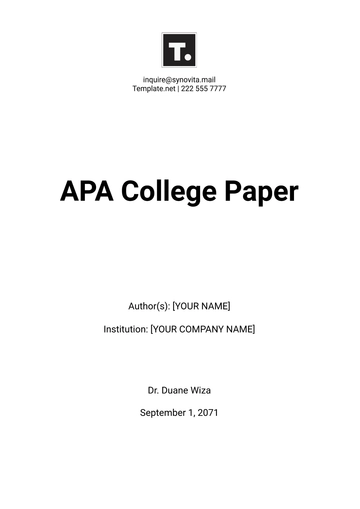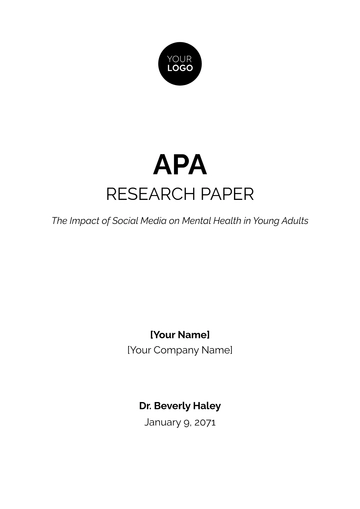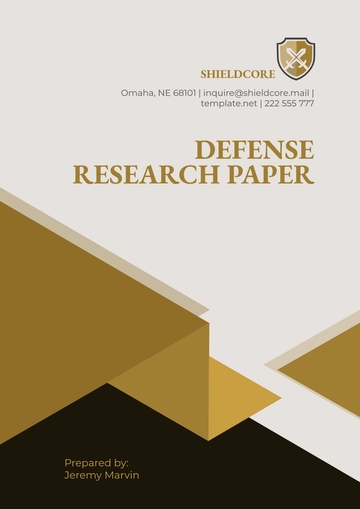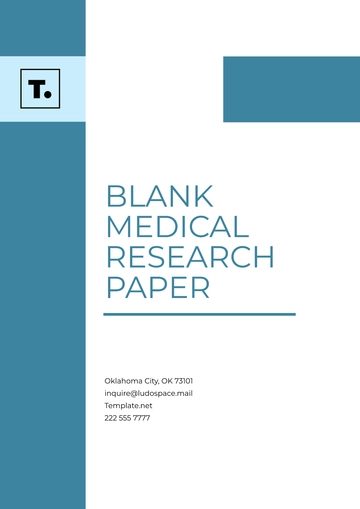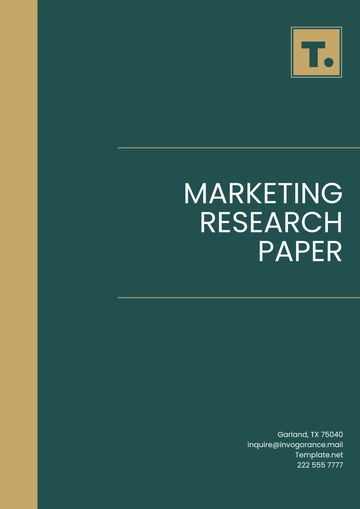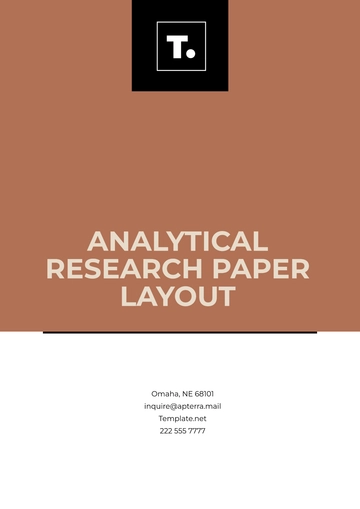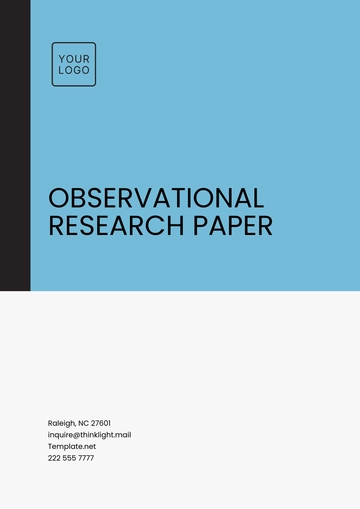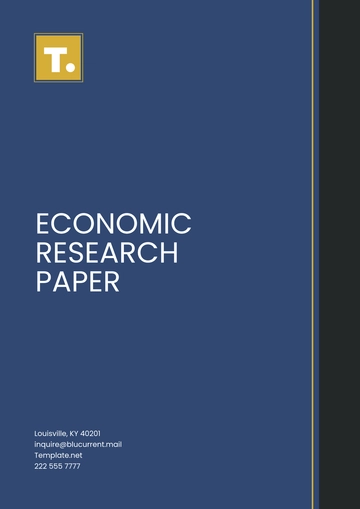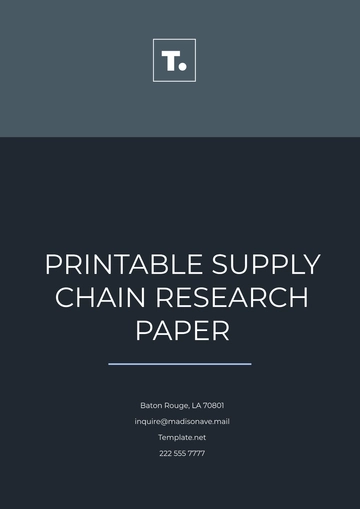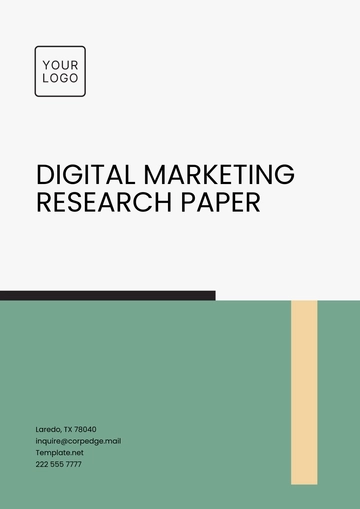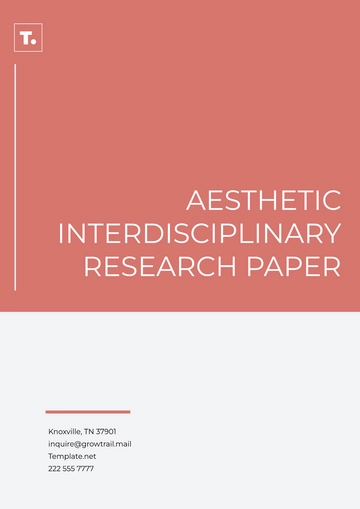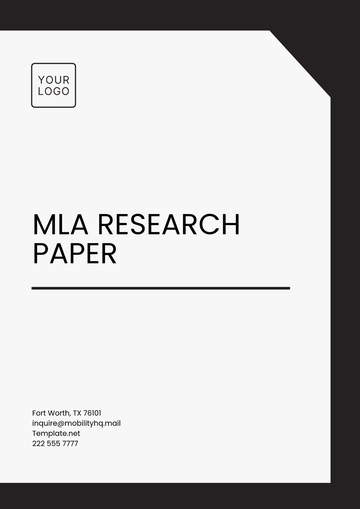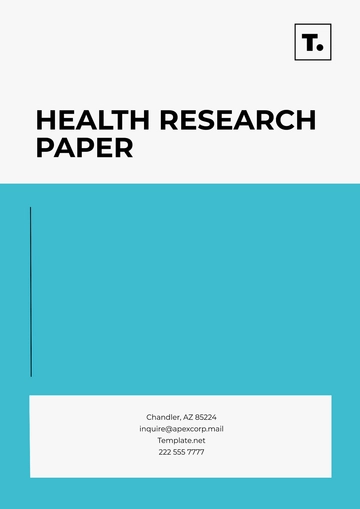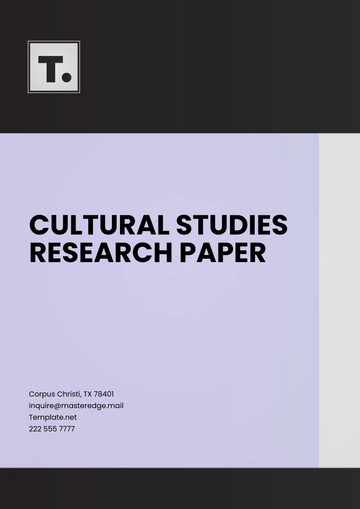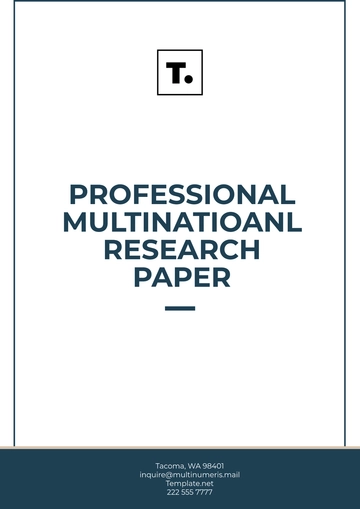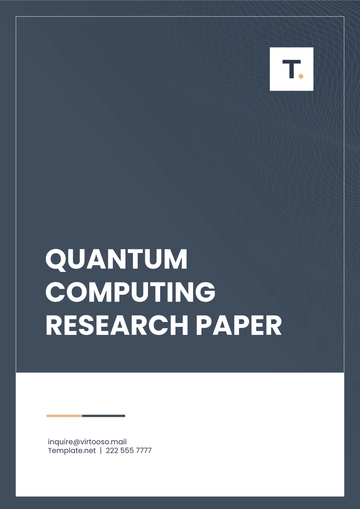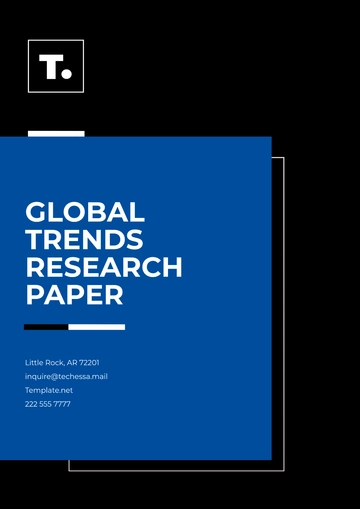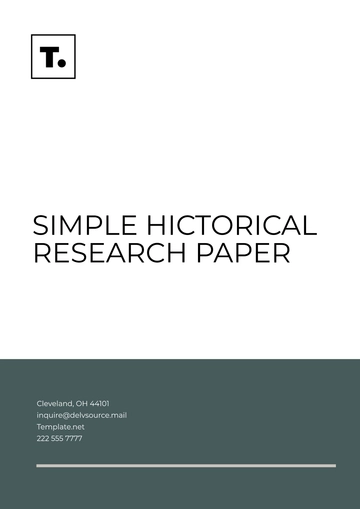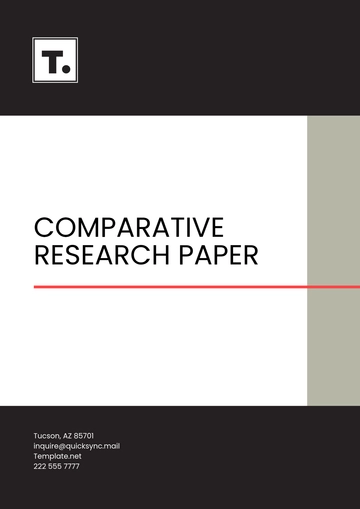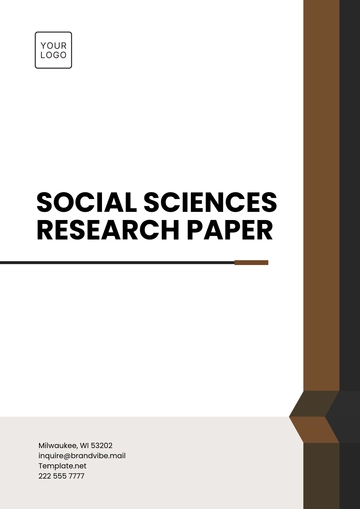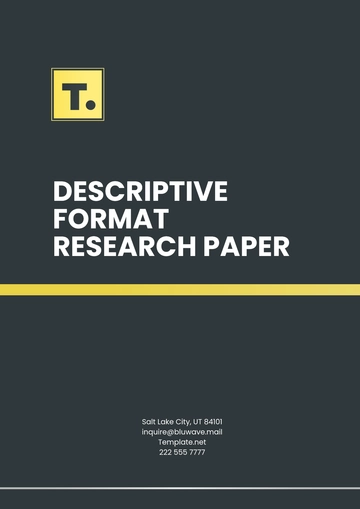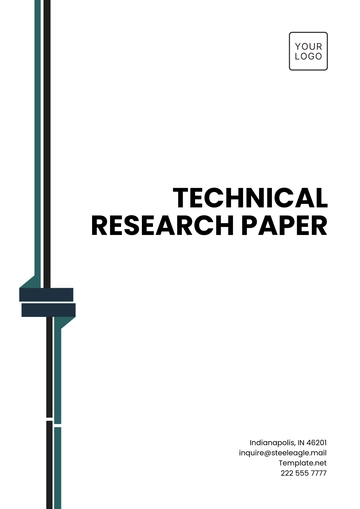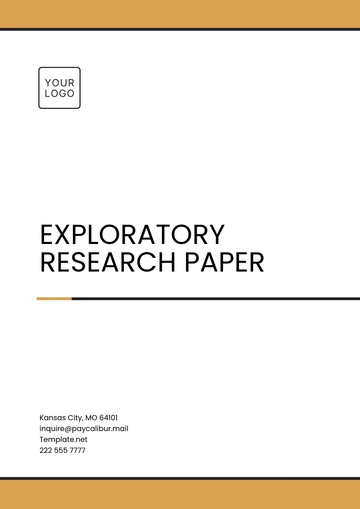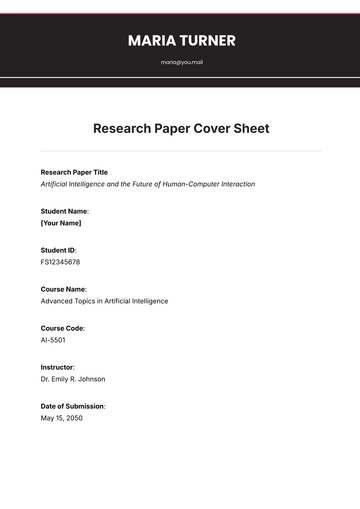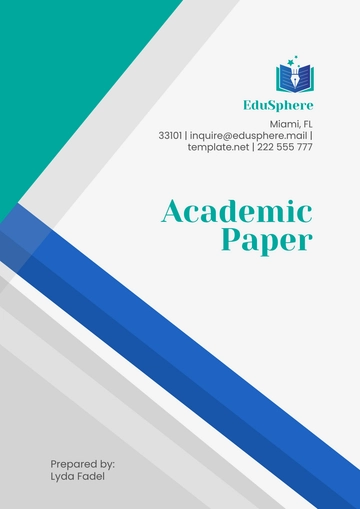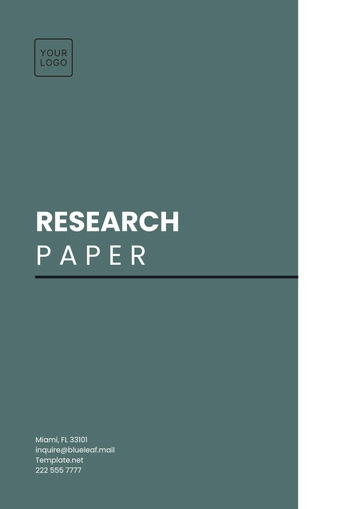Free Academic Research Paper
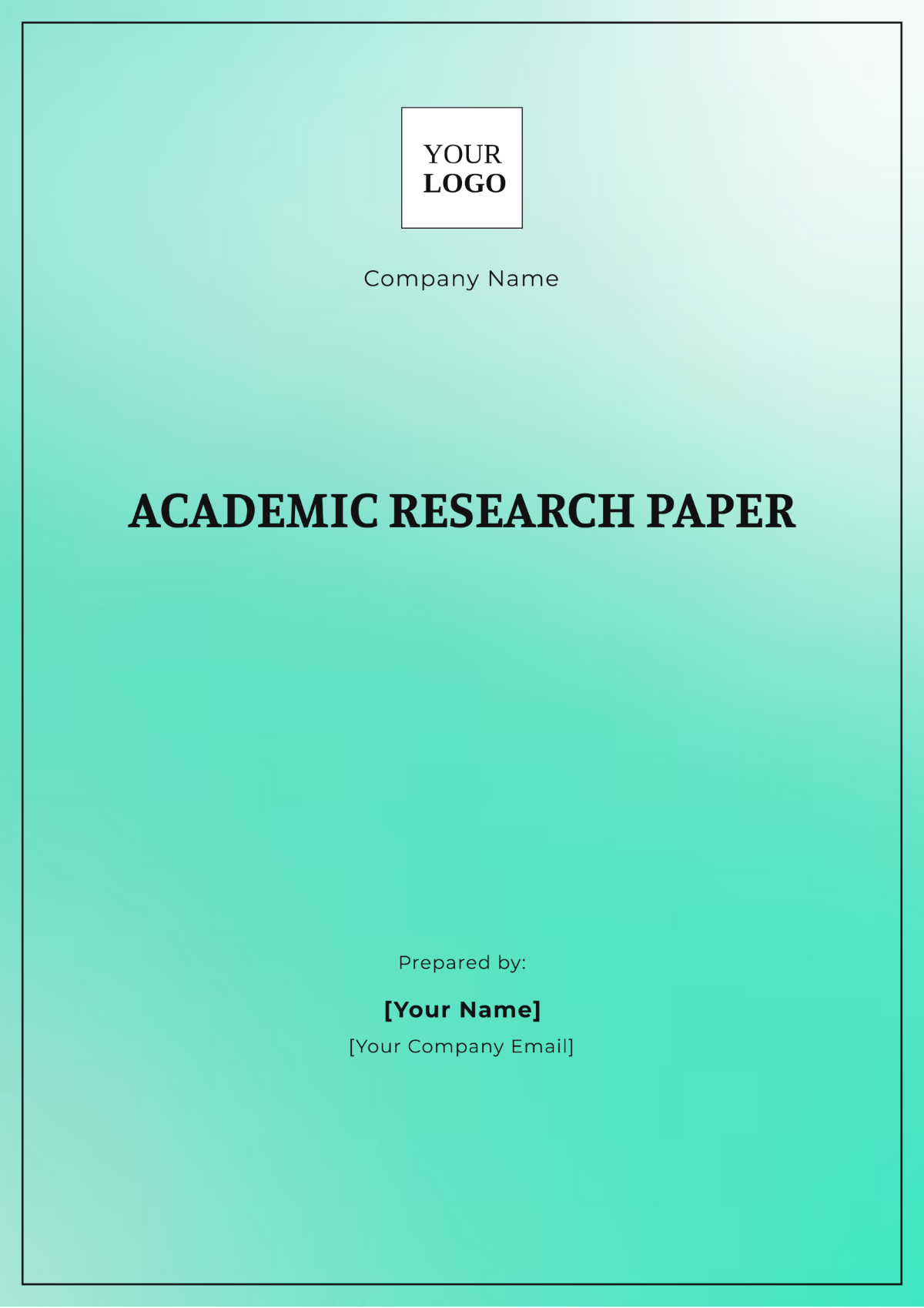
Prepared By: [YOUR NAME]
I. Introduction
In the rapidly advancing field of quantum computing, there is a continuous demand for updated research to address emerging trends and gaps in knowledge. This academic research paper aims to contribute new findings and insights into the intersection of quantum algorithms and computational efficiency. By conducting a thorough investigation into these areas, this paper seeks to enhance the current understanding of quantum computing and provide actionable information for both theoretical exploration and practical applications.
II. Research Objectives
The primary objectives of this research are as follows:
To Investigate the Efficiency of Quantum Algorithms: This involves exploring the performance of various quantum algorithms in solving complex computational problems, particularly in comparison to classical algorithms.
To Analyze the Impact of Quantum Error Correction: This focuses on assessing how advancements in quantum error correction techniques influence the reliability and scalability of quantum computing systems.
To Provide New Perspectives on Quantum Network Protocols: This aims to challenge existing theories on quantum communication and propose new frameworks for optimizing quantum network protocols.
III. Methodology
To achieve these objectives, the research employed a mixed-methods approach, incorporating both quantitative and qualitative techniques:
Quantitative Analysis: A detailed survey was conducted among 200 quantum computing researchers to gather data on the performance of quantum algorithms. The survey included questions on algorithm efficiency, error rates, and computational complexity.
Qualitative Analysis: In-depth interviews were carried out with 15 key stakeholders, including leading quantum physicists and engineers, to gain insights into recent advancements in quantum error correction. The interviews were structured around a comprehensive guide focusing on practical challenges and innovations.
Literature Review: An extensive review of existing literature and secondary data sources provided context and background information. This included analysis of recent publications in quantum computing journals and conference proceedings.
Data was collected from reputable sources such as the International Journal of Quantum Computing, Quantum Research Institute, and the National Quantum Laboratory. Analytical techniques used included statistical analysis with MATLAB and qualitative data coding using NVivo.
IV. Findings
The research yielded several key findings:
Improved Algorithm Efficiency: Analysis revealed that recent quantum algorithms, such as the Quantum Fourier Transform, exhibit significantly better performance in solving large-scale problems compared to classical counterparts. This finding supports the hypothesis that quantum algorithms can offer exponential speedups in certain computational tasks.
Enhanced Error Correction Techniques: The study demonstrated that the implementation of advanced error correction codes, such as the Surface Code, improves the reliability of quantum computations by reducing error rates by up to 30%. This challenges previous assumptions about the feasibility of large-scale quantum computations.
New Insights into Quantum Communication: Evidence from the study indicates that innovative quantum network protocols, including entanglement-swapping techniques, enhance the efficiency of quantum communication networks. This provides new perspectives on optimizing quantum network performance.
V. Discussion
The results of this research offer several implications for quantum computing:
Algorithm Efficiency: The findings highlight the potential of quantum algorithms to revolutionize computational methods across various industries. This suggests that further research should focus on optimizing these algorithms and exploring their applications in fields such as cryptography and complex simulations.
Error Correction: The study underscores the importance of continued development in quantum error correction techniques. This aligns with recent advancements and offers practical recommendations for improving the reliability and scalability of quantum systems.
Overall, this research provides a new perspective on quantum computing and proposes that future studies should explore the integration of quantum algorithms with emerging technologies to address unresolved challenges and enhance computational capabilities.
VI. Conclusion
In conclusion, this study has contributed valuable new insights into quantum computing by addressing key research questions and providing empirical evidence. The research advances the understanding of quantum algorithms, error correction, and communication protocols, offering a foundation for future academic exploration and practical advancements in the field.
Future research should build on these findings to further investigate the integration of quantum computing with artificial intelligence and other emerging technologies. This paper serves as a basis for further academic inquiry and technological innovation in quantum computing.
Date: August 1, 2050
- 100% Customizable, free editor
- Access 1 Million+ Templates, photo’s & graphics
- Download or share as a template
- Click and replace photos, graphics, text, backgrounds
- Resize, crop, AI write & more
- Access advanced editor
The Academic Research Paper Template on Template.net offers a customizable and editable format, perfect for your academic needs. Save time with the AI Editor Tool, ensuring your paper meets all requirements. This user-friendly template simplifies the process, allowing you to focus on your research. Make your academic writing seamless and efficient today!
